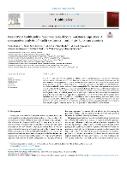Post-COVID health policy responses to healthcare workforce capacities: a comparative analysis of health system resilience in six European countries

Author
Burau, Viola
Buch Mejsner, Sofie
Falkenbach, Michelle
Publication date
2024Published in
Health PolicyVolume / Issue
139 (January)ISBN / ISSN
ISSN: 0168-8510ISBN / ISSN
eISSN: 1872-6054Metadata
Show full item recordCollections
This publication has a published version with DOI 10.1016/j.healthpol.2023.104962
Abstract
A cross countries in Europe, health policy is seeking to adapt to the post-pandemic 'permacrisis', where high demands on the healthcare workforce and shortages continue and combine with climate change, and war. The success of these efforts depends on the capacities of the healthcare workforce. This study aims to compare health policy responses to strengthen the capacities of the healthcare workforce and to explore the underpinning dynamics between health systems, policy actors and health policies. The study draws on a qualitative, comparative analysis of Austria, the Czech Republic, Denmark, Germany, Italy and the Netherlands. The findings suggest that policy responses at the national level focused on hospitals and absorptive capacities, while policy responses at local/regional levels also included general practice and adaptive capacities. There were only few examples of policies directed at transformative capacities. The underling dynamics were shaped by health systems, where individual parts are closely connected, by embeddedness in specific service delivery and areas, and by power dynamics. In conclusion, sub-national health policy responses emerge as key to effective responses to the post-pandemic permacrisis, where health professions are central policy actors. Sub-national health policy responses build on existing power relations, but also have the potential to transcend these power relations.
Keywords
Healthcare workforce, Health Systems Resilience, health policy, EU comparison
Permanent link
https://hdl.handle.net/20.500.14178/2750License
Full text of this result is licensed under: Creative Commons Uveďte původ 4.0 International






